第36章 ON SOME FRENCH FASHIONABLE NOVELS(1)
WITH A PLEA FOR ROMANCES IN GENERAL.
There is an old story of a Spanish court painter, who, being pressed for money, and having received a piece of damask, which he was to wear in a state procession, pawned the damask, and appeared, at the show, dressed out in some very fine sheets of paper, which he had painted so as exactly to resemble silk.Nay, his coat looked so much richer than the doublets of all the rest, that the Emperor Charles, in whose honor the procession was given, remarked the painter, and so his deceit was found out.
I have often thought that, in respect of sham and real histories, a similar fact may be noticed; the sham story appearing a great deal more agreeable, life-like, and natural than the true one: and all who, from laziness as well as principle, are inclined to follow the easy and comfortable study of novels, may console themselves with the notion that they are studying matters quite as important as history, and that their favorite duodecimos are as instructive as the biggest quartos in the world.
If then, ladies, the big-wigs begin to sneer at the course of our studies, calling our darling romances foolish, trivial, noxious to the mind, enervators of intellect, fathers of idleness, and what not, let us at once take a high ground, and say,--Go you to your own employments, and to such dull studies as you fancy; go and bob for triangles, from the Pons Asinorum; go enjoy your dull black draughts of metaphysics; go fumble over history books, and dissert upon Herodotus and Livy; OUR histories are, perhaps, as true as yours; our drink is the brisk sparkling champagne drink, from the presses of Colburn, Bentley and Co.; our walks are over such sunshiny pleasure-grounds as Scott and Shakspeare have laid out for us; and if our dwellings are castles in the air, we find them excessively splendid and commodious;--be not you envious because you have no wings to fly thither.Let the big-wigs despise us;such contempt of their neighbors is the custom of all barbarous tribes;--witness, the learned Chinese: Tippoo Sultaun declared that there were not in all Europe ten thousand men: the Sklavonic hordes, it is said, so entitled themselves from a word in their jargon, which signifies "to speak;" the ruffians imagining that they had a monopoly of this agreeable faculty, and that all other nations were dumb.
Not so: others may be DEAF; but the novelist has a loud, eloquent, instructive language, though his enemies may despise or deny it ever so much.What is more, one could, perhaps, meet the stoutest historian on his own ground, and argue with him; showing that sham histories were much truer than real histories; which are, in fact, mere contemptible catalogues of names and places, that can have no moral effect upon the reader.
As thus:--
Julius Caesar beat Pompey, at Pharsalia.
The Duke of Marlborough beat Marshal Tallard at Blenheim.
The Constable of Bourbon beat Francis the First, at Pavia.
And what have we here?--so many names, simply.Suppose Pharsalia had been, at that mysterious period when names were given, called Pavia; and that Julius Caesar's family name had been John Churchill;--the fact would have stood in history, thus:--"Pompey ran away from the Duke of Marlborough at Pavia."And why not?--we should have been just as wise.Or it might be stated that--"The tenth legion charged the French infantry at Blenheim; and Caesar, writing home to his mamma, said, 'Madame, tout est perdu fors l'honneur.'"What a contemptible science this is, then, about which quartos are written, and sixty-volumed Biographies Universelles, and Lardner's Cabinet Cyclopaedias, and the like! the facts are nothing in it, the names everything and a gentleman might as well improve his mind by learning Walker's "Gazetteer," or getting by heart a fifty-years-old edition of the "Court Guide."
Having thus disposed of the historians, let us come to the point in question--the novelists.
On the title-page of these volumes the reader has, doubtless, remarked, that among the pieces introduced, some are announced as "copies" and "compositions." Many of the histories have, accordingly, been neatly stolen from the collections of French authors (and mutilated, according to the old saying, so that their owners should not know them) and, for compositions, we intend to favor the public with some studies of French modern works, that have not as yet, we believe, attracted the notice of the English public.
Of such works there appear many hundreds yearly, as may be seen by the French catalogues; but the writer has not so much to do with works political, philosophical, historical, metaphysical, scientifical, theological, as with those for which he has been putting forward a plea--novels, namely; on which he has expended a great deal of time and study.And passing from novels in general to French novels, let us confess, with much humiliation, that we borrow from these stories a great deal more knowledge of French society than from our own personal observation we ever can hope to gain: for, let a gentleman who has dwelt two, four, or ten years in Paris (and has not gone thither for the purpose of making a book, when three weeks are sufficient--let an English gentleman say, at the end of any given period, how much he knows of French society, how many French houses he has entered, and how many French friends he has made?--He has enjoyed, at the end of the year, say--At the English Ambassador's, so many soirees.
At houses to which he has brought letters, so many tea-parties.
At Cafes, so many dinners.
At French private houses, say three dinners, and very lucky too.